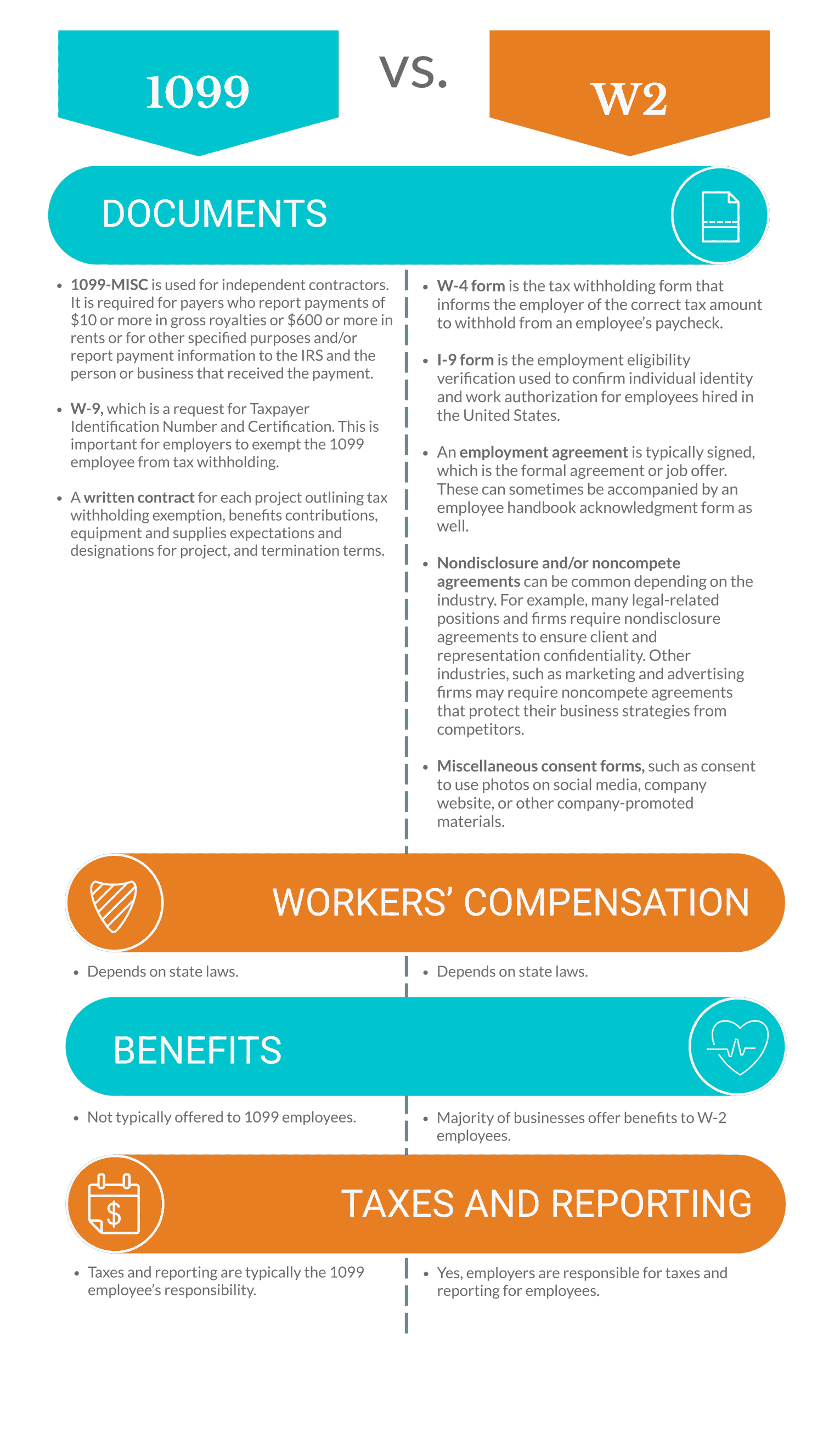
The concept of effortless achievement, often expressed colloquially, refers to the idea that success can be attained without significant exertion. An example might be inheriting a successful business rather than building one from the ground up. This notion can be applied to various domains, including career advancement, financial gain, or social status.
While the allure of minimal effort for maximal reward is undeniable, it’s crucial to understand the potential implications of such a perspective. A reliance on unearned success may hinder the development of essential skills, resilience, and a true appreciation for the value of hard work. Historically, this concept has been a recurring theme in literature and folklore, often serving as a cautionary tale against unrealistic expectations and the potential pitfalls of seeking shortcuts to success.
The following sections will explore the practical realities of achievement, the development of a strong work ethic, and the importance of cultivating resilience in the face of challenges.
1. Unrealistic Expectations
Unrealistic expectations form a cornerstone of the effortless success fallacy. This mindset often stems from a distorted perception of how achievement is attained, overlooking the necessary dedication, perseverance, and effort required for genuine accomplishment. Believing in a path of least resistance creates a disconnect between ambition and the practical steps needed to realize it. For example, aspiring to become a renowned musician without dedicating time to practice or seeking mentorship demonstrates an unrealistic expectation rooted in the allure of instant recognition without the requisite work. This disconnect can lead to disappointment and disillusionment when faced with the inevitable challenges inherent in any pursuit.
The pervasiveness of social media can exacerbate unrealistic expectations. Filtered portrayals of success often present a skewed image of reality, showcasing only the positive outcomes while concealing the struggles and setbacks involved. This can foster a belief that overnight triumphs are the norm, further fueling the desire for effortless achievement. Consider the example of entrepreneurship: while social media may highlight the glamorous aspects of launching a successful business, it often overlooks the long hours, financial risks, and numerous obstacles encountered along the way. This curated representation distorts the true nature of entrepreneurial endeavors, potentially leading individuals to underestimate the dedication and resilience required.
Understanding the detrimental impact of unrealistic expectations is crucial for fostering a healthier perspective on achievement. Recognizing that true success requires sustained effort, learning from setbacks, and adapting to challenges is essential for personal and professional growth. Cultivating a realistic outlook allows individuals to approach their goals with a balanced perspective, embracing the necessary work involved while developing the resilience needed to navigate inevitable obstacles.
2. Shortcut Mentality
The pursuit of effortless success often goes hand-in-hand with a shortcut mentality. This mindset prioritizes immediate gratification and seeks the easiest path to a desired outcome, regardless of the long-term consequences or the ethical implications. It represents a departure from the principles of hard work, dedication, and perseverance that typically underpin genuine achievement. Understanding the facets of this mentality is crucial for recognizing its potential pitfalls and cultivating a more sustainable approach to success.
-
Immediate Gratification
The desire for instant results fuels the shortcut mentality. This focus on immediate rewards often overshadows the importance of long-term planning and sustained effort. Examples include seeking rapid weight loss through fad diets rather than adopting sustainable lifestyle changes, or opting for plagiarism instead of dedicating time to original research and writing. Such approaches prioritize speed over substance, often leading to unsustainable outcomes and hindering genuine development.
-
Aversion to Effort
A central characteristic of the shortcut mentality is the avoidance of challenges and hard work. This aversion stems from a belief that success should be easily attainable, leading individuals to shy away from tasks that require significant effort or perseverance. For instance, neglecting necessary practice in a skill-based pursuit or opting for less demanding career paths solely to avoid challenges demonstrates this aversion. Ultimately, this avoidance hinders skill development and limits potential for growth.
-
Focus on Outcomes over Process
The shortcut mentality often prioritizes the end result over the process of achievement. This focus can lead to a disregard for ethical considerations and a willingness to compromise values in pursuit of a desired outcome. Examples include engaging in unethical business practices to maximize profits or taking credit for the work of others to advance one’s career. Such actions undermine the integrity of the achievement itself and erode trust in the individual.
-
External Validation
Seeking external validation rather than intrinsic motivation further reinforces the shortcut mentality. This reliance on external approval can drive individuals to pursue superficial indicators of success, such as social media followers or material possessions, often at the expense of genuine personal growth and fulfillment. This focus on external validation perpetuates a cycle of seeking shortcuts to achieve outward appearances of success, neglecting the internal development necessary for lasting achievement.
These interconnected facets of the shortcut mentality ultimately hinder genuine and sustainable success. While the allure of effortless achievement is tempting, embracing the value of hard work, perseverance, and ethical conduct proves essential for realizing true potential and building a fulfilling life. The pursuit of shortcuts often leads to a superficial and ultimately unsatisfying form of achievement, lacking the depth and resilience that comes from genuine dedication and effort.
3. Lack of Effort
The allure of “easy works by easy street” often translates into a lack of effort, a critical factor undermining genuine achievement. This absence of dedication and perseverance manifests in various ways, hindering skill development, fostering unrealistic expectations, and ultimately impeding long-term success. Exploring the specific facets of this lack of effort provides valuable insight into its detrimental impact.
-
Skill Stagnation
Without consistent effort, skills remain underdeveloped. This stagnation prevents individuals from reaching their full potential and limits their ability to navigate challenges effectively. For instance, a musician who avoids regular practice will likely plateau in their abilities, hindering their progress and limiting their artistic expression. Similarly, professionals who neglect continuous learning in their field risk becoming outdated and less competitive, ultimately impacting their career trajectory.
-
Dependence on External Factors
Lack of effort often leads to a reliance on external factors, such as luck or connections, rather than internal drive and capability. This dependence creates a fragile foundation for success, susceptible to external changes and unforeseen circumstances. An individual relying solely on family connections for career advancement, without developing their own skills and expertise, risks their position should those connections weaken or disappear. This reliance on external support ultimately hinders self-reliance and long-term stability.
-
Diminished Resilience
Effort cultivates resilience, the ability to overcome setbacks and persevere in the face of adversity. A lack of effort, conversely, diminishes this crucial trait. Individuals who haven’t developed resilience through consistent effort are more likely to become discouraged and abandon their pursuits when faced with challenges. For example, an entrepreneur who avoids tackling difficult tasks or learning from failures may be ill-equipped to handle the inevitable obstacles of building a business, increasing the likelihood of giving up prematurely.
-
Erosion of Work Ethic
Consistent effort strengthens work ethic, a fundamental value that promotes diligence, perseverance, and a commitment to quality. Lack of effort erodes this ethic, fostering a sense of entitlement and a disregard for the importance of hard work. Students who consistently take shortcuts in their studies, for instance, may develop a weakened work ethic that carries over into their professional lives, potentially impacting their career prospects and overall success.
These interconnected facets of lack of effort demonstrate its profound impact on the pursuit of meaningful achievement. While the illusion of effortless success may be tempting, it ultimately undermines the development of essential skills, resilience, and a strong work ethic, all crucial components of genuine and sustainable accomplishment. The absence of dedicated effort creates a fragile and unsustainable foundation for success, hindering personal growth and limiting long-term potential. It reinforces the fundamental principle that true achievement requires consistent dedication, perseverance, and a willingness to embrace the necessary work involved.
4. Unearned Rewards
Unearned rewards represent a cornerstone of the “easy works by easy street” illusion. This concept centers on receiving benefits without commensurate effort or deserving merit. The allure of such rewards fuels the desire for effortless success, creating a disconnect between the value of hard work and the expectation of achievement. Understanding the cause-and-effect relationship between unearned rewards and this flawed perspective is crucial for fostering a more realistic and sustainable approach to success. For instance, inheriting wealth without contributing to its creation can foster a sense of entitlement and diminish the motivation to develop skills or pursue personal growth. Similarly, receiving praise or recognition for work primarily completed by others creates a false sense of accomplishment, hindering genuine skill development and fostering a reliance on external validation.
The perceived ease of acquiring unearned rewards reinforces the misconception that success can be attained without significant effort. This can lead to a devaluing of hard work and a decreased willingness to invest the necessary time and dedication to achieve meaningful goals. Consider the example of a student consistently receiving inflated grades without demonstrating true understanding of the subject matter. This unearned academic reward can cultivate a false sense of competence and diminish the motivation to engage deeply with the material, ultimately hindering long-term learning and academic growth. In professional settings, promotions based on favoritism rather than merit can similarly create an environment where genuine effort is undervalued, hindering overall productivity and fostering resentment among colleagues.
Recognizing the detrimental impact of unearned rewards is crucial for fostering a healthier perspective on achievement. Understanding that true success stems from consistent effort, dedication, and perseverance provides a more sustainable foundation for personal and professional growth. While the allure of effortless gain may be tempting, embracing the value of hard work ultimately leads to more meaningful and fulfilling accomplishments. Addressing the challenges associated with unearned rewards requires promoting a culture that values merit, recognizes genuine effort, and fosters an environment where individuals are motivated to develop their skills and contribute meaningfully to their chosen pursuits.
5. Sustainability Issues
The concept of “easy works by easy street” inherently clashes with the principles of sustainability. True sustainability, whether in personal achievements, environmental practices, or economic models, requires ongoing effort, adaptation, and a long-term perspective. The pursuit of effortless success often neglects these crucial elements, leading to various sustainability issues that ultimately undermine the desired outcomes.
-
Resource Depletion
A mindset focused on effortless gains often overlooks the responsible management of resources. This can lead to depletion of essential resources, whether financial, environmental, or interpersonal. For example, a business prioritizing short-term profits over sustainable practices might overexploit natural resources, damaging the environment and jeopardizing its own long-term viability. Similarly, an individual relying on inherited wealth without developing financial management skills risks depleting those resources quickly, leading to future financial instability. This disregard for resource management undermines long-term stability and creates unsustainable practices.
-
Lack of Adaptability
Effortless success often breeds complacency and a resistance to change. This lack of adaptability becomes problematic in dynamic environments requiring continuous adjustment and innovation. A company relying solely on outdated technology without investing in research and development risks being overtaken by competitors embracing innovation. Similarly, an individual unwilling to adapt their skills to evolving job market demands may face career stagnation or unemployment. The inability to adapt ultimately undermines long-term success and creates vulnerability to changing circumstances.
-
Fragile Foundations
Success built on shortcuts and minimal effort creates fragile foundations. This lack of solid groundwork makes achievements susceptible to collapse when faced with challenges or unforeseen circumstances. A career built on connections rather than merit, for instance, may be jeopardized if those connections disappear. Similarly, a business prioritizing rapid growth through aggressive marketing without establishing a strong operational infrastructure may struggle to handle increased demand, leading to operational failures and reputational damage. These fragile foundations undermine long-term stability and increase the risk of failure.
-
Ethical Compromises
The pursuit of effortless success can sometimes lead to ethical compromises. Prioritizing quick wins over ethical considerations can damage reputations, erode trust, and ultimately undermine long-term success. A company engaging in deceptive advertising practices to boost sales might experience short-term gains but ultimately face legal repercussions and reputational damage. Similarly, an individual taking credit for the work of others might achieve initial recognition but ultimately damage their professional relationships and credibility. These ethical compromises create unsustainable practices and undermine long-term trust.
These sustainability issues highlight the inherent conflict between the pursuit of effortless success and the principles of long-term stability and genuine achievement. The “easy works by easy street” mentality often overlooks the crucial elements of responsible resource management, adaptability, solid foundations, and ethical conduct, ultimately jeopardizing sustained success and creating vulnerabilities in the long run. True and lasting achievement requires consistent effort, a willingness to adapt, and a commitment to ethical practices, ensuring sustainability and resilience in the face of challenges.
Frequently Asked Questions
This section addresses common inquiries regarding the concept of effortless success and its implications.
Question 1: Does effortless success truly exist?
While seemingly effortless achievements can occur, they often involve unseen effort, privilege, or fortunate circumstances not readily replicated. True, lasting success typically requires sustained dedication and work.
Question 2: What are the potential consequences of pursuing effortless success?
Focusing solely on effortless gains can lead to underdeveloped skills, a lack of resilience, and an unsustainable reliance on external factors. This approach often hinders long-term growth and fulfillment.
Question 3: How can one cultivate a healthier perspective on achievement?
Cultivating realistic expectations, valuing the process of hard work, and embracing challenges as opportunities for growth foster a more sustainable and fulfilling approach to success.
Question 4: What role does work ethic play in achieving long-term goals?
A strong work ethic, characterized by diligence, perseverance, and a commitment to quality, provides a crucial foundation for overcoming obstacles and achieving lasting success. It fosters self-reliance and promotes continuous improvement.
Question 5: How can one avoid the trap of seeking shortcuts?
Focusing on intrinsic motivation, valuing the learning process, and prioritizing long-term growth over immediate gratification helps cultivate a mindset resistant to the allure of shortcuts. This approach fosters resilience and a deeper appreciation for the journey towards achievement.
Question 6: What is the relationship between effort and genuine fulfillment?
Genuine fulfillment often stems from the process of overcoming challenges and achieving meaningful goals through dedicated effort. The satisfaction derived from hard work contributes significantly to a sense of purpose and accomplishment.
Ultimately, pursuing meaningful goals through dedicated effort offers a more sustainable and fulfilling path to success than seeking shortcuts or relying on unearned rewards. Embracing the value of hard work fosters resilience, personal growth, and a deeper appreciation for the journey towards achievement.
The following section will explore practical strategies for cultivating a strong work ethic and developing resilience in the pursuit of meaningful goals.
Practical Strategies for Sustainable Success
While the allure of effortless achievement is tempting, genuine and lasting success requires a different approach. The following strategies offer practical guidance for cultivating a sustainable path to meaningful accomplishment.
Tip 1: Embrace the Value of Hard Work: Recognize that meaningful achievements rarely come without dedicated effort. Embrace challenges as opportunities for growth and development. For example, mastering a musical instrument requires consistent practice and dedication, leading to a deeper appreciation of the skill and a greater sense of accomplishment.
Tip 2: Cultivate Realistic Expectations: Avoid the trap of unrealistic expectations. Understand that progress takes time and setbacks are inevitable. Setting achievable goals and celebrating incremental progress fosters motivation and prevents discouragement. For instance, when learning a new language, focusing on mastering basic vocabulary and grammar before tackling complex sentence structures creates a more manageable and rewarding learning experience.
Tip 3: Develop a Growth Mindset: Embrace a growth mindset, believing that abilities and intelligence can be developed through dedication and hard work. This mindset fosters resilience and a willingness to embrace challenges as opportunities for learning. A growth mindset encourages individuals to view setbacks not as failures, but as valuable learning experiences that contribute to personal and professional development.
Tip 4: Focus on the Process, Not Just the Outcome: Shift focus from solely achieving the end result to valuing the process of learning and growth. This approach fosters intrinsic motivation and a deeper appreciation for the journey towards achievement. Engaging fully in the process of writing a novel, for example, allows for the development of writing skills, exploration of creative ideas, and personal growth, regardless of the final publication outcome.
Tip 5: Prioritize Continuous Learning: Embrace lifelong learning and consistently seek opportunities to expand knowledge and skills. This proactive approach ensures adaptability and relevance in evolving environments. Professionals in technology fields, for instance, benefit from continuous learning to stay current with emerging trends and maintain their competitive edge.
Tip 6: Build Strong Foundations: Focus on developing a solid foundation of knowledge, skills, and ethical principles. This groundwork provides stability and resilience in the face of challenges. For example, entrepreneurs who prioritize building a strong business plan and operational infrastructure create a more sustainable venture capable of weathering market fluctuations.
Tip 7: Seek Mentorship and Guidance: Don’t hesitate to seek guidance from mentors and experienced individuals. Learning from the insights and experiences of others provides valuable perspective and accelerates growth. Aspiring writers, for instance, can benefit greatly from the guidance of established authors, gaining valuable feedback and insights into the craft of writing.
By implementing these strategies, individuals can cultivate a more sustainable and fulfilling approach to achievement, grounded in hard work, continuous learning, and a commitment to personal growth. This fosters resilience, adaptability, and a deeper appreciation for the journey towards meaningful success.
The concluding section will summarize the key takeaways and offer final thoughts on cultivating a fulfilling path to genuine achievement.
Conclusion
This exploration of the “easy works by easy street” concept reveals a fundamental disconnect between the allure of effortless success and the realities of genuine achievement. The examination of unrealistic expectations, the shortcut mentality, lack of effort, unearned rewards, and sustainability issues underscores the detrimental impact of pursuing success without the requisite dedication and perseverance. True and lasting achievement necessitates a different approach, grounded in hard work, continuous learning, and a commitment to ethical principles.
The pursuit of meaningful goals requires embracing challenges as opportunities for growth, cultivating resilience in the face of setbacks, and valuing the process of continuous improvement. While the temptation of effortless gains may persist, a commitment to hard work and dedication ultimately provides a more sustainable and fulfilling path to genuine accomplishment. This approach fosters not only external success but also the development of essential character traits, a strong work ethic, and a deeper appreciation for the journey towards achieving one’s full potential.



